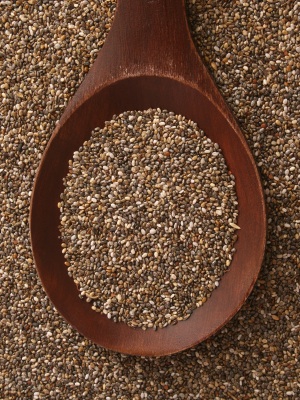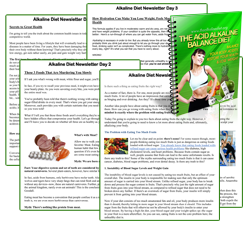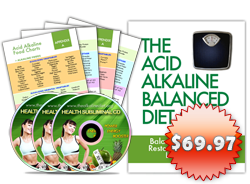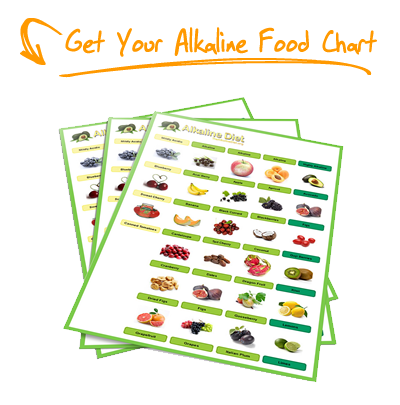Chia Seeds – a Superfood in Your Kitchen?
Posted on 15. Jun, 2011 by Emma Deangela in Alkaline Foods, Blog
 “Chia” , a word that means strength, is of Mayan origin. Since 2500 BC, these ancient energy-packed seeds which were then more precious than gold, have been a main food for the American Natives. The Southwest Indians would consume nothing but Chia seeds dissolved in water as an energy food, and would traverse the Colorado River to the Pacific Ocean on foot to trade their products. The Aztecs on the other hand deemed it to be enormously valuable for healing – from cleaning the eyes, to aiding wound-healing. It was also used to ease joint pain and was applied topically. Aztec warriors would eat Chia during hunting trips.
“Chia” , a word that means strength, is of Mayan origin. Since 2500 BC, these ancient energy-packed seeds which were then more precious than gold, have been a main food for the American Natives. The Southwest Indians would consume nothing but Chia seeds dissolved in water as an energy food, and would traverse the Colorado River to the Pacific Ocean on foot to trade their products. The Aztecs on the other hand deemed it to be enormously valuable for healing – from cleaning the eyes, to aiding wound-healing. It was also used to ease joint pain and was applied topically. Aztec warriors would eat Chia during hunting trips.
Health Benefits
Chia is not declared as a superfood for nothing. Here are the qualities and nutrients found in Chia that make it precious more than gold four thousand years ago until today.
- Hyprophyillic Property. Chia can soak-up up to 12 times its weight in water. This property can aid in maintaining the body’s hydration and also balance the electrolyte level in the body. This is therefore an ideal food for athletes since it enhances endurance and alertness. When dissolved in water for at least 30 minutes, Chia will form a thick gel. This gel formation will block the enzymes for digestion and will slow down the sugar conversion from carbohydrates. This gel-forming ability is very beneficial for diabetics who need to keep watch their blood glucose level. This is also helpful remedy for those who are experiencing heartburn, but without any risk of harmful side effects.
- Antioxidant. This super seed is a seriously potent antioxidant, 3 times more than that of blueberries. Antioxidant helps the body in fighting diseases and defying age naturally.
- Fiber. Chia is one of the best sources of natural fiber. Fibers can cleanse the digestive tract and the bloodstream from bad cholesterol. This will enable the absorption of nutrients more effectively and promote regular bowel movement. Because of this, fibers from Chia can also promote weight loss and is ideal for dieters.
- Omega 3 and 6 Fatty Acids. Chia can provide a healthy balance of Omega 3 and Omega 6 fatty acids, two of the many essential fatty acids that the human body cannot produce on its own. These essential fatty acids help keep the heart healthy. These are also important for normal brain function, avoiding depression, and promoting general health. The high amount of good fat in Chia seeds makes the bugs wary of touching it, thus making it unnecessary for any chemical or pesticide intervention.
- Protein. The protein in Chia seeds is already complete. No other grain or seed contains as much as protein as Chia. In fact, it contains twice the protein of any other grain or seed. The protein in Chia seeds is more digestible and more absorbable in the body. Protein is essential in building and repairing tissues which include bone, muscle, cartilage, nails hair, and skin.
- B Vitamins and Calcium. These minute black seeds contain large amounts of B vitamins and calcium. Compared to milk, it contains 6 times more calcium. Calcium is responsible for maintaining healthy bones and teeth.
- Iron. Chia seeds have 3 times more iron content than spinach. Iron is necessary for carrying oxygen to all parts of the body.
Boron. Chia seeds also contain boron. Boron enhances the absorption and the metabolism of calcium, magnesium, manganese, and phosphorus which essential for muscle and bone growth. Boron can also help in increasing the natural estrogen level in the body.
How to Prepare Chia Seeds
The seeds are very easy to use and store. Because they are odorless and tasteless, they won’t go bad. A tablespoon of Chia can be dissolved in glass of water, coffee, milk, or juice. Let it sit for about five minutes, stir, and then drink.
Making Chia seeds into a gel is also a common way of preparing it. Put 1/3 cup of Chia seeds into any container with 2 cups of water. Whisk the mixture briskly and let it sit for 5-10 minutes. Sealing it and refrigerating it makes it last up to 3 weeks. You can then add it to jellies, jams, milkshakes, peanut butter, nut spreads, cold or hot cereals, smoothies, mustard, yogurts, barbecue sauces, catsup, tartar sauce, or anything that you will like putting Chia into.
You can also ground them into a powder and use them for cooking or baking. Extreme heat or cold does not affect the nutritional value nor the taste of the Chia seeds. 1-4 tablespoons a of Chia a day is the recommended dosage.
Clinical Facts on Chia Seeds
On Diabetes. Research made in St. Michael’s Hospital, Canada has concluded that Chia seeds considerably reduced the risk of cardiovascular problems for people who have type II diabetes. Systolic blood pressure reduction while maintaining blood glucose level was significantly observed. Vladimir Vuksan, the Head researcher said that adding Chia to any food will improve health significantly.
On Cholesterol Level. Chickens and other livestock were fed with Chia as an experiment in the University of Arizona Chia seeds were fed to. It was observed that the lipid content of the products produced was significantly lowered. As a comparative study, the same was done using flax seeds. The result was there were fewer eggs produced. And when fish oil was used, the eggs were fishy flavored. Neither problem was met when using Chia seeds in the research. In another study, rats were fed with Chia seeds for 30 days. Cholesterol levels and other heart disease risk factors were significantly reduced in rats.





Recent Comments